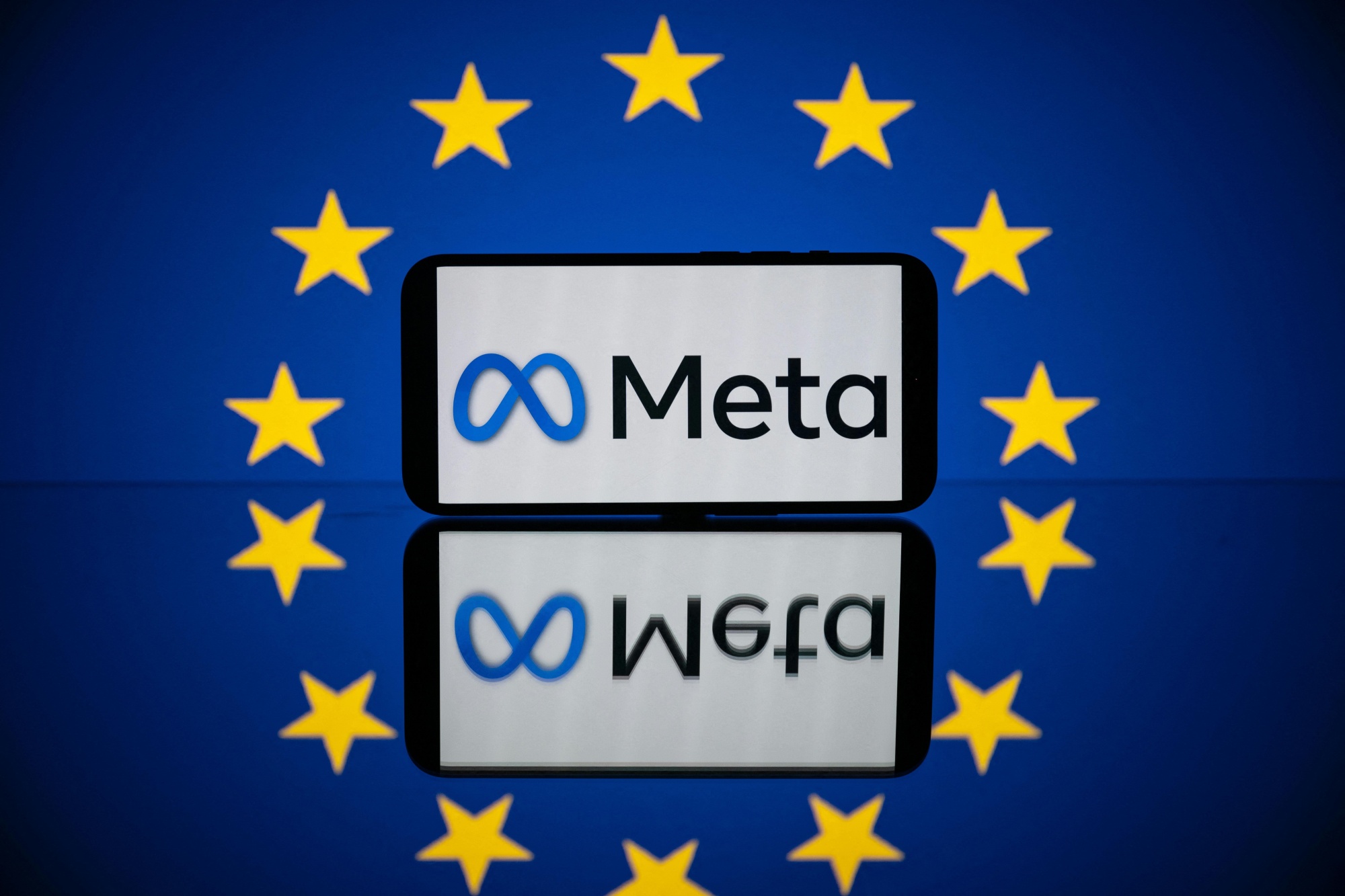The European Union (EU) is taking a strong stance against Meta Platforms, the parent company of Facebook and Instagram. The EU’s antitrust watchdog, the European Commission, has charged Meta with violating the recently enacted Digital Markets Act (DMA) over its controversial “pay or consent” advertising model. This SEO-optimized article delves into the details of this case, exploring the arguments from both sides and the potential consequences for Meta.

Understanding the “Pay or Consent” Model
In November 2023, Meta rolled out a new advertising model in Europe. This model presents users with a seemingly straightforward choice:
- Consent to data tracking: Users can continue using Facebook and Instagram for free, but Meta will collect and utilize their data for targeted advertising purposes.
- Pay for an ad-free experience: Users can opt for a paid subscription that removes personalized advertising from their Facebook and Instagram feeds.
This seemingly binary option has sparked significant controversy. Privacy advocates and regulators, including the EU Commission, argue that this model unfairly pressures users into surrendering their data privacy.
Why the EU Commission Takes Issue with “Pay or Consent”
The core of the EU Commission’s argument lies in the lack of a truly user-centric alternative. Here’s a breakdown of the Commission’s perspective:
Limited User Autonomy Over Personal Data
The Commission argues that Meta’s model restricts user control over their personal information. EU’s antitrust chief, Margrethe Vestager, stresses the importance of offering options that empower users to manage their data without being forced into extensive tracking.
The Need for a Privacy-Respecting Alternative
The Commission contends that users deserve access to a version of Facebook and Instagram that functions without mandatory data sharing. This version may offer a less personalized experience, but it should respect user privacy by limiting data collection practices.
Meta’s Defense and Potential Path Forward
Meta maintains that its “pay or consent” model complies with EU regulations. The company cites a recent ruling by the European Court of Justice (ECJ) that allows platforms to condition access to services on user consent for data collection. Meta emphasizes its commitment to working with the Commission to find a solution.
Here’s a closer look at Meta’s stance:
Adherence to EU Regulations and Court Rulings
Meta argues that its model aligns with the spirit of the DMA and reflects the guidance provided by the ECJ’s recent ruling. The subscription option, according to Meta, provides a clear alternative for users who prioritize privacy over personalized advertising.
Openness to Collaboration
Meta expresses a willingness to engage in constructive dialogue with the Commission to address any concerns. The company believes a collaborative approach can lead to a solution that respects both user privacy and Meta’s business model.
Potential Consequences for Meta and the Future of Data Privacy
The investigation into Meta’s compliance with the DMA is ongoing and is expected to conclude by March 2025. If found guilty of breaching the DMA, Meta could face significant sanctions:
- Fines: The DMA empowers the Commission to impose fines of up to 10% of a company’s global annual turnover for non-compliance.
- Changes to the Ad Model: The Commission could compel Meta to modify its “pay or consent” model to provide a privacy-centric alternative that aligns with the DMA’s principles.
This case sets a significant precedent for data privacy regulations in the digital age. It demonstrates the EU’s commitment to holding Big Tech giants accountable for their data practices and its efforts to empower users with greater control over their personal information.
Beyond the Headlines: A Broader Look at the EU’s Digital Agenda
The EU’s charges against Meta are part of a broader effort to create a more fair and competitive digital environment. The DMA, along with the Digital Services Act (DSA), aims to:
- Promote user choice and control over data: The EU wants to empower users to make informed decisions regarding their online data and how it is used by platforms like Facebook and Instagram.
- Foster competition within the tech industry: The DMA targets anti-competitive practices by large tech companies, aiming to create a level playing field for smaller businesses and developers.
The outcome of this case will be closely watched by regulators, tech companies, and privacy advocates worldwide. The EU’s stance has the potential to influence data privacy regulations across the globe.
Frequently Asked Questions:
Q: What is the “pay or consent” ad model?
A: Meta’s model gives users a choice between allowing data tracking for free access to Facebook and Instagram or paying for an ad-free experience.
Q: What does Meta say about these charges?
A: Meta maintains that its model complies with EU regulations and reflects a recent ECJ ruling. They emphasize their commitment to finding a solution through collaboration with the Commission.
Q: What are the potential consequences for Meta if found guilty?
A: Meta could face fines of up to 10% of its global annual turnover and be forced to modify its “pay or consent” model to provide a privacy-centric alternative.
Q: How does this case impact the broader conversation about data privacy?
A: This case is a significant step in the EU’s effort to create a framework for data privacy and hold Big Tech accountable. It has the potential to influence data privacy regulations on a global scale.




